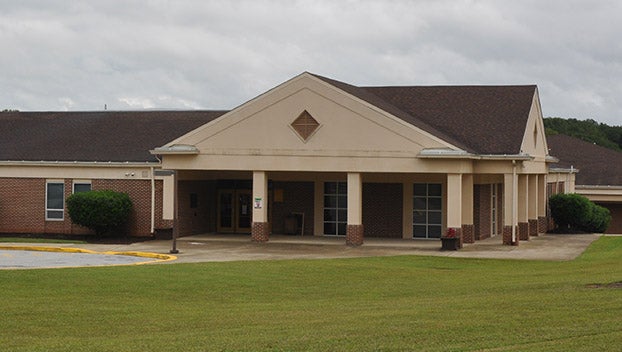How will Prince Edward pay for elementary school renovations?
Published 4:30 am Thursday, September 7, 2023
|
Getting your Trinity Audio player ready...
|
We know which renovation option Prince Edward supervisors chose for the elementary school. We also know the price tag, coming in at $43.5 million. That just leaves one question. How will the county pay for it?
Before we get into that, we need to mention a couple things. First, there’s a good chance the cost will get trimmed down. The Commonwealth has a series of capital improvement grants that cities and counties can apply for to pay for school renovations. Applications are currently being accepted for the latest round of those and Prince Edward has applied. If they get approved, the county would get 20% of the total or $8.7 million paid for through this grant. That would leave Prince Edward with just under $35 million to pay.
What can Prince Edward afford?
Second, we need to understand what the county can afford to pay and what its debt payments currently look like. Right now, the county is paying on $15,874,709 in debt. That includes a principal of $13,078,107 and total interest of $ 2,796,602. Currently the county is paying $1.9 million yearly on that. Those yearly payments significantly drop in fiscal year 2032, dropping down to $560,550. By that point, Prince Edward will have paid off some previous investments for the schools, among other things.
“The County has two pieces of debt falling off in FY 2032,” said James Sanderson Jr. He serves as senior vice president for Davenport & Company, the firm acting as financial advisors to the Prince Edward board. “The 2015 lease purchase was a loan for energy efficient equipment for schools in the original amount of $5 million. In addition, the 2017B refunding bonds (will be) paid off.”
Those bonds refinanced three prior borrowings, two from 1998 and one from 2008. The 1998 loans, Sanderson said, were for courthouse renovations and the 2008 debt paid off a line of credit for the Sandy River Reservoir.
The remaining debt, beyond what we just mentioned, is currently on track to be paid off by 2035. So the county would be debt free in 12 years. With that in mind, supervisors have several options on how to pay for this school renovation.
Sales tax, if the state allows
Supervisors originally had a plan that wouldn’t require any real estate tax increase. The idea was to raise Prince Edward’s sales tax by 1%, but in Virginia, a city or county has to first get permission from the General Assembly, then citizens have to vote on the concept. Previous county administrator Wade Bartlett floated the idea in 2019. In 2021, 2022 and 2023, supervisors pushed to get a bill filed in the Assembly, but each time it died.
Could it be revived? It’s possible. Eight counties and one city over the years fought and eventually got approval by the state to raise sales tax to pay for school repairs. That includes neighboring Charlotte County, Gloucester County, Halifax County, Henry County, Mecklenburg County, Northampton County, Patrick County, Pittsylvania County and the City of Danville.
“We are still actively trying to work with the General Assembly on the sales tax option,” Prince Edward Administrator Doug Stanley said. “(But) even if we get the authorization, the voters will decide whether or not a locality would implement that or not.”
At the earliest, the county would have to wait until the 2024 session to try again, then if it’s approved, get it on the ballot for residents to vote on next fall. It would then take an additional year for revenue to actually start coming in. And so, that leaves three current options.
Breaking down Prince Edward choices
First, let’s look at the similarities between the three. All three of these cases involve an expected meals tax contribution. Davenport officials project the county meals tax to provide $200,000 in 2024 and 2025, then $250,000 in 2026 and every year after. All three of these options also would involve a real estate tax increase. The question is how much.
Option One, that would be a real estate tax increase of 8.93 cents per $100 of assessed value, spread out over several years. Under this plan, the real estate tax rate would increase by 2.65 cents in 2025 and then another 5.28 cents in 2026. The benefit is there is no upfront cost involved here.
Option Two would require the county to pay $2 million upfront. That would help push back the need for any real estate rate increase until 2027, where it would go up 7.35 cents per $100 of assessed value and another 0.28 cents the following year.
“It’s like setting up a reserve account to offset your mortgage,” Sanderson explained.
Option Three would have the lowest real estate tax rate impact. While both of the other two require rate increases over 8 cents, this one would only require a 4.88 cent total rate increase, coming in 2027 and 2028.
Why? Because Option Three structures the debt, spreading out the cost.
“ You’re paying more debt service over time, because you’re not paying back your principal as quickly,” Sanderson said.
‘This is a worst case scenario’
One thing Doug Stanley pointed out to supervisors during their special session on Thursday, Aug. 31 is that all of the numbers mentioned above are a worst case.
“To me, this is the worst case scenario,” Stanley said of the options given. The reason, he said, is that as revenues grow, the board will have the opportunity to set more money aside. It’s just like paying down your house or car. There’s what you have to pay and then if you put more towards it, that helps speed up the process.
“Every year, our budget gets a little more additional revenue,” Stanley said. “We’re getting a new Wawa, we’re gonna get a new car wash. The board has to make decisions on how to allocate those additional tax dollars as they come in. You may decide we’re not going to add positions. Instead, we’re going to put any extra we can toward the school project, to try to offset the tax impact. This is simply looking at the worst case scenario of how to fund a project like this without making any cuts or structural changes (to county government).”
What happens next for Prince Edward?
The county already set aside money for pay for the renovation designs and planning. That’s where the project is right now. The project wouldn’t go out for bid until next spring, with a late summer 2024 start time for any construction. So there’s almost a year left to get funding in place.





